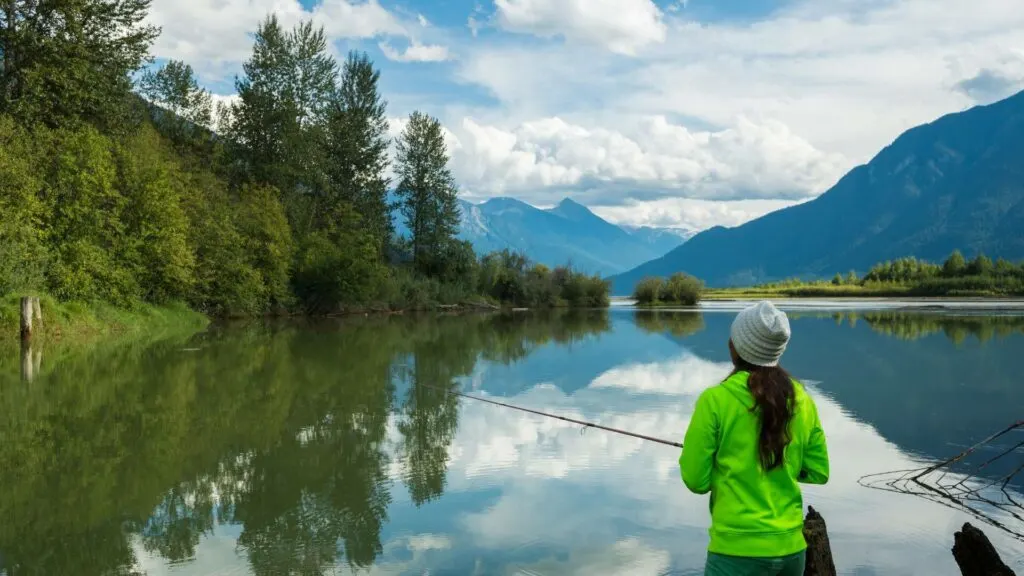Fishing can be a relaxing and fulfilling activity for many people, providing a chance to escape the hustle and bustle of everyday life and connect with nature. However, it’s important to remember that fishing also comes with its own set of risks. From sharp hooks to unpredictable weather conditions, various hazards can arise during a fishing trip if proper safety measures aren’t taken. Whether you’re an experienced angler or new to the sport, ensuring your safety is crucial in order to have a secure and enjoyable fishing experience. In this blog post, we will cover six key safety tips that every fisherman should know before heading out on their next adventure.

1. Know the Best Times to go Fishing
Understanding the optimal times for fishing is crucial for safety and success. Fish are more active during specific times of the day, particularly during the cool hours of dawn and dusk, which are often considered ideal. However, these periods may also present low-light conditions, so it’s essential to have proper lighting equipment to prevent accidents.
Furthermore, paying attention to seasonal variations can guide you in choosing a suitable period for fishing. For instance, spring and fall are often great times for fishing due to fish being more active. You need to find out the best times for fishing in your specific location, as it may vary depending on various factors such as weather patterns and fish species. Researching and planning can help you avoid unfavorable conditions, keeping you safe while on the water.
2. Check Weather Conditions Beforehand
Never underestimate the importance of checking the weather forecast before heading out on a fishing trip. Sudden changes in weather can turn a peaceful day on the water into a dangerous scenario. This includes not only storms and heavy rainfall but also high winds, which can create choppy waters and make boat navigation hazardous.
It is important to have a reliable source of weather updates, whether it be a mobile app or a marine weather radio. Furthermore, it’s recommended to always have a contingency plan in case the weather takes a turn for the worse. By staying on top of the weather conditions, you can ensure a safer and more enjoyable fishing adventure.
3. Wear Appropriate Clothing
Wearing appropriate clothing is paramount to ensure safety and comfort during your fishing trip. Choose attire that suits the weather and the environment you will be fishing in. During cooler weather, consider dressing in layers, allowing you to remove or add clothing as necessary.
When fishing in the sun, protect yourself from harmful UV rays by wearing long sleeves, a hat, and sunglasses. Waterproof shoes or boots offer stability on slippery surfaces, reducing accident risks. The right attire enhances your fishing experience and prepares you for varying conditions.
4. Pack Essential Safety Gear
In addition to clothing, it’s important to pack essential safety gear before embarking on your fishing trip. This includes items such as life jackets, first aid kits, and a fire extinguisher if you’re using a boat. Make sure all safety equipment is in good condition and easily accessible in case of an emergency.
It’s wise to carry a communication device, like a cell phone or two-way radio, to seek help if needed. For boaters, having a marine VHF radio for boat is especially important for reliable communication on the water.
5. Handle Fishing Equipment Carefully
Fishing equipment, such as sharp hooks and lines, can be dangerous if mishandled. Always ensure you have a firm grip on your fishing rod to avoid any accidents while casting or reeling in a catch. When handling fish, use caution when removing hooks to prevent injury to yourself or the fish.
Moreover, it is crucial to properly dispose of any used fishing lines or hooks to avoid harm to wildlife. Cutting and disposing of these items responsibly can also prevent fellow anglers from getting tangled in discarded lines. By handling fishing equipment carefully, you can minimize the risk of accidents for yourself and others.
6. Stay Hydrated and Bring Snacks
Fishing can be a physically demanding activity, especially if you’re out on the water for an extended period. It’s important to stay hydrated and bring snacks to keep your energy levels up. Dehydration can lead to fatigue and impaired judgment, increasing the risk of accidents.
Additionally, having food on hand can be crucial in case of an emergency or unexpected delays. Pack nutritious snacks that provide sustained energy, such as trail mix or protein bars. And don’t forget to bring plenty of water, as staying hydrated is key to a safe and enjoyable fishing experience.
Fishing is a wonderful activity that offers both relaxation and excitement. However, it’s important to prioritize safety in order to enjoy the experience fully. By following these six key safety tips, you can have a secure and enjoyable fishing trip, leaving all your worries behind and focusing on what truly matters – connecting with nature and reeling in that big catch.

Jessi is the creative mind behind The Coffee Mom, a popular blog that combines parenting advice, travel tips, and a love for all things Disney. As a trusted Disney influencer and passionate storyteller, Jessi’s authentic insights and relatable content resonate with readers worldwide.

How to Prepare for a Paddleboard Fishing Trip
Monday 25th of December 2023
[…] are cool enough so all of you can quench your thirst. Plus, if you’re planning to keep the fish you caught, you can always place it inside of it. Another great thing about it is that it can serve […]